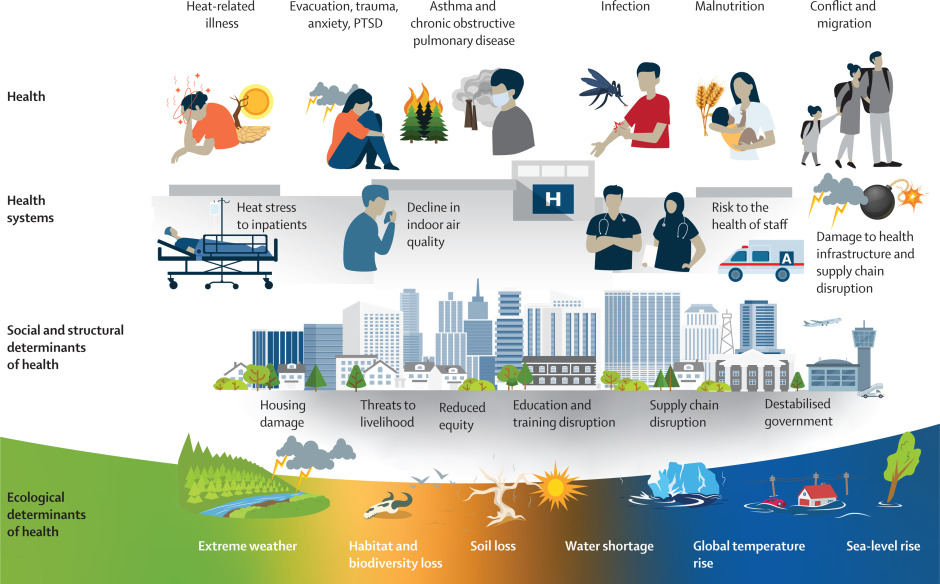This Personal View supports SDGs 3 and 13 by developing a framework to maximise the influence of the health community on decarbonisation and identifying practical approaches by which to implement this framework.
This Comment article supports SDGs 3 and 13 by highlighting the need for more global-level studies across different climate zones to determine the true nature of the association between temperature and Shigella infection, particularly in the context of extreme heat and heat waves induced by climate change.
Elsevier,
Food Safety Management: A Practical Guide for the Food Industry, Second Edition, 2023, pp 1041-1052
This chapter aligns with Goal 3: Good Health and Wellbeing and Goal 13: Climate Action by acknowledging the complexities and compounding effects of climate change on food safety.
This podcast, relating to SDG 3, Health and Wellbeing, is part of the Elsevier celebration of the World Health Organization’s World Health Day whose aim is to promote health, keep the world safe and serve the vulnerable – so everyone, everywhere can attain the highest level of health and well-being. April 7th 2023 marks the WHO’s 75th anniversary of World Health Day, with a focus of improving public health for all.
Integrating Horses Into Healing, 2023, Pages 19-26
This content aligns with Goal 3: Good Health as well as Goal 17: Partnership for the goals by reviewing equine-assisted services and the benefits to human therapy.
The paper discusses the progress of SDGs Life on Land and Life below water over the past decade
The authors of this paper conclude that training food service staff and other food service staff may be beneficial to improve meal quality in the Early Care and Education (ECE) programs but point out that positive changes did not last, perhaps indicating a need for longer and rigorous trainings.



